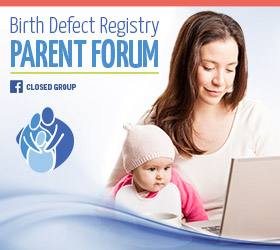How to Advocate for your Child
If you have a child with a disability, you may be confronted by advice from many professionals in the fields of medicine, education and/or rehabilitation. You may become confused by all the different opinions about your child’s care. Or you may not agree with a particular professional’s advice or plan of care.
How can you advocate effectively for your child without alienating those you need to help your child?
Working with professionals
Most professionals are dedicated to helping you choose the best plan for diagnosing, treating, educating and caring for your child. Yet, almost every family of a child with a serious disability has at least one horror story about a professional who seemed to care more about not having his/her authority challenged than assisting the family. There are effective ways to help avoid such conflicts.
Educate yourself about your child’s disability
You can become the expert about your child’s condition. Public, university and hospital libraries as well as the internet offer a wealth of information about all kinds of disabilities. If you become familiar with the medical terms, the possible prognosis and treatment choices for your child’s disability, you will gain the respect of professionals.
Keep good records
Keep written records of all meetings, telephone calls and written communications about your child’s condition. You are entitled to copies of your child’s medical and school records, so be sure to ask for copies from each professional. If possible, take a tape recorder with you to all meetings about your child. It is also helpful to ask a friend or family member to go with you.
Ask for opinions in writing
At the end of each meeting, ask the professional you are working with to sum up the results of the conference in a letter or memorandum to you. This record will let you know right away whether you have a clear understanding of what has been agreed on.
Problem solving
If you do not agree with an educational placement or a medical treatment plan that has been recommended for your child, you have options. First, you can present your concerns in writing to the professional you are working with. A written document is often more clear and convincing than conversation that can become emotional on such issues.
Next, you can ask for a second or third opinion. When your child’s welfare is at stake, it is important to compare the advice from several professionals and choose the option that is best for your child.
Or you can take your problems up the chain of command. Sometimes parents are reluctant to “go over a professional’s head” in an organization, but that is why there are levels of authority. You may find that your problems are easily solved at the second or third level above the one where you started.
Finally, you are the last word on your child’s treatment and educational placement. You do not have to agree to any plan that you do not feel is in your child’s best interest.
Teaching your child to be their own advocate
As your child reaches middle and high school years, you need to encourage him/her to learn to advocate for themselves. Children with disabilities gain a great feeling of control over their lives when they learn to stand up for themselves. Sometimes it is hard for the parent who has always intervened on behalf of their child to let go, but it is an important step in helping your child become a self-reliant and independent individual.
Thank those that helped you
Every parent of a child with a disability has worked with truly dedicated professionals who became special friends and allies. Thank these special Advocate people in little ways: fresh baked cookies, flowers from your garden, a valentine’s card. Everybody likes to feel appreciated. Sometimes these little acts of kindness can even improve your relationship with a professional you have had problems with.
Trust yourself
You may not have lots of degrees, titles or letters after your name. But you are the expert and ultimate authority when it comes to your child. You can get the best care for your child by being friendly, yet firm. Assertive, not angry. And persistent, not pushy.
Fact Sheet by:
Birth Defect Research Children, Inc.
www.birthdefects.org







